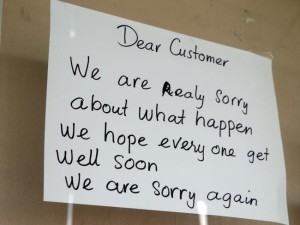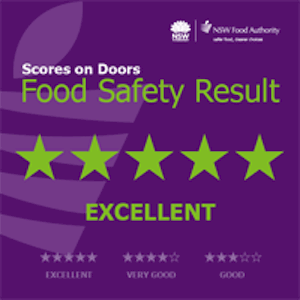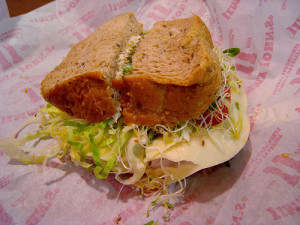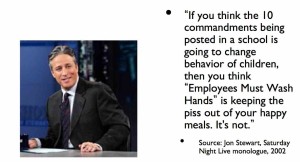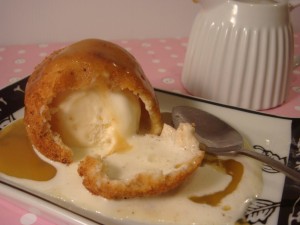Some of Sydney’s most popular cheap eateries have, according to Daily Mail Australia, been named on the The New South Wales Food Authority’s latest ‘name and shame’ file.
 It seems cheap eats are so for a reason as many of the state’s fast food outlets, including a number of Nanods, Domino’s and Subway stores have been shamed for failing to meet hygiene standards.
It seems cheap eats are so for a reason as many of the state’s fast food outlets, including a number of Nanods, Domino’s and Subway stores have been shamed for failing to meet hygiene standards.
Nando’s in Liverpool was fined twice last year for failing to ‘maintain at or near each hand washing facility a supply of single use towels’, and not complying with food safety standards, a total of $1760.
Marrickville’s Minh Vietnamese Restaurant, Jasmin 1 in Bankstown and Petersham’s popular Frango’s Portuguese Charcoal Chicken also feature on the list, some of them on multiple occasions for varying offences.
The New South Wales Food Authority publishes lists of businesses that have breached or are alleged to have breached the state’s food safety laws.
Publishing the lists gives consumers more information to make decisions about where they eat or buy food.
Famed chicken outlet Frango’s was fined $440 in March.
The Petersham favourite failed to ‘maintain at or near each hand washing facility a supply of soap and single use towels.’


